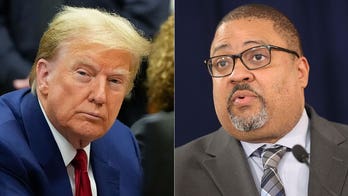
AP
The Rubio-Cruz déjà vu continues. Yesterday, in a stunning upset victory, former Texas Solicitor General Ted Cruz defeated Texas Lt. Governor David Dewhurst in the Republican primary runoff for U.S. Senate. The unofficial election night results, with all precincts reporting, show Cruz decisively defeating Dewhurst 56.8% to 43.2%. Cruz is highly likely to become the next U.S. Senator from Texas with a win in the November 6 general election given that no Democrat has won statewide office in Texas since 1994.
It seems as though Cruz is following in Rubio’s footsteps although if Cruz is elected to the U.S. Senate, in some ways it would be even more remarkable than Rubio’s win. In 2009, when Rubio launched his campaign for Senate, he had been a Florida State Representative for nearly a decade (since 2000) and was also Speaker of the House (since 2006). He had some name recognition and a base of support even though he started out in low single digits in the polls and was running against a sitting governor. In contrast, Cruz probably started out with even longer odds than Rubio. Cruz hasn’t previously held elected office. This was his first campaign and he ran against a sitting Lt. Governor with establishment backing and a multi-million dollar funding advantage.
The predominant story line in the media will be that another “Tea Party favorite” has defeated another “establishment politician”, as has been the case in other states like Indiana and Nebraska. Many stories will be written as if that is all there is to it. The Tea Party played a decisive role in the victory but there is more to the story of Cruz’ triumph in Texas.
Cruz is a rising star in a national movement and was able to effectively combine the support of the Tea Party with numerous grassroots conservative and Republican groups and individuals. There is also a sense that he’s tapping into a vast reservoir of discontent among voters who are just plain tired of the way government is being run and want to throw out incumbents, even from their own party. Cruz has endorsements and has received support from a who’s who of both Tea Party and conservative groups and individuals. According to the Cruz campaign, in addition to numerous prominent organizational and individual endorsements, Cruz also received endorsements from “over 200 Texas Republican women leaders and over 200 Tea Party leaders.”
Cruz has a broad base of support statewide and nationally. An indicator of Cruz’ broad base of support is that the Cruz campaign received contributions from around 30,000 people from nearly 1,000 cities in Texas plus contributions from people in every state in America. The average contribution size was small, around $150, which was right around 10% of the average size of contributions made to Dewhurst. Fundraising from individuals was decisive in keeping Cruz competitive in the race. Individual contributions to Cruz totaled $7.9 million vs. $7.2 million to Dewhurst. Third-party groups poured millions into both sides of the race but Dewhurst ended up with a huge funding advantage mainly due to net loans to his own campaign of $19.5 million. At the end of the day, Dewhurst had more money but Cruz won because he had enough money to be competitive combined with an army of grassroots supporters.
Cruz made extensive use of social media. In January of this year, Cruz made the announcement that he was running for Senate on a conference call with conservative bloggers. His campaign has staffers devoted to digital strategy and social media. A couple of examples of the results are that as of this writing, Cruz has 85,754 likes on his Facebook page vs. 43,387 for Dewhurst. Cruz has 26,586 followers on Twitter vs. 6,332 for Dewhurst. Throughout the campaign Cruz supporters were lighting up the web with Facebook posts and Twitter tweets.
Cruz just plain outworked Dewhurst. Whether its dominoes, debate, arguing before the U.S. Supreme Court or running for the U.S. Senate, Ted Cruz is a fierce competitor. That competitiveness drove Cruz and his army of supporters to outwork and outfight Dewhurst and his many millions of dollars spent airing ads. One example of Cruz outworking Dewhurst is that both candidates were invited to literally dozens of candidate forums. Dewhurst spoke at only a handful of the forums while Cruz spoke at virtually all of them.
Cruz is among the emerging next generation of political leaders. He’s young, he’s Latino and he’s fierce. Cruz, at 41, represents the more diverse, post baby-boom generation who are coming into their own and taking on the mantle of top leadership. Dewhurst, at 66, represents the baby boom generation at the height of their power, some of whom are now struggling to hold on to power as the next generation emerges. Not only did Cruz take on Lt. Governor Dewhurst, he took on Governor Rick Perry, two of the other primary candidates, 18 of 19 Republican State Senators, and a plethora of prominent groups and individuals. In effect, Cruz took on virtually the entire “old guard” and won.




